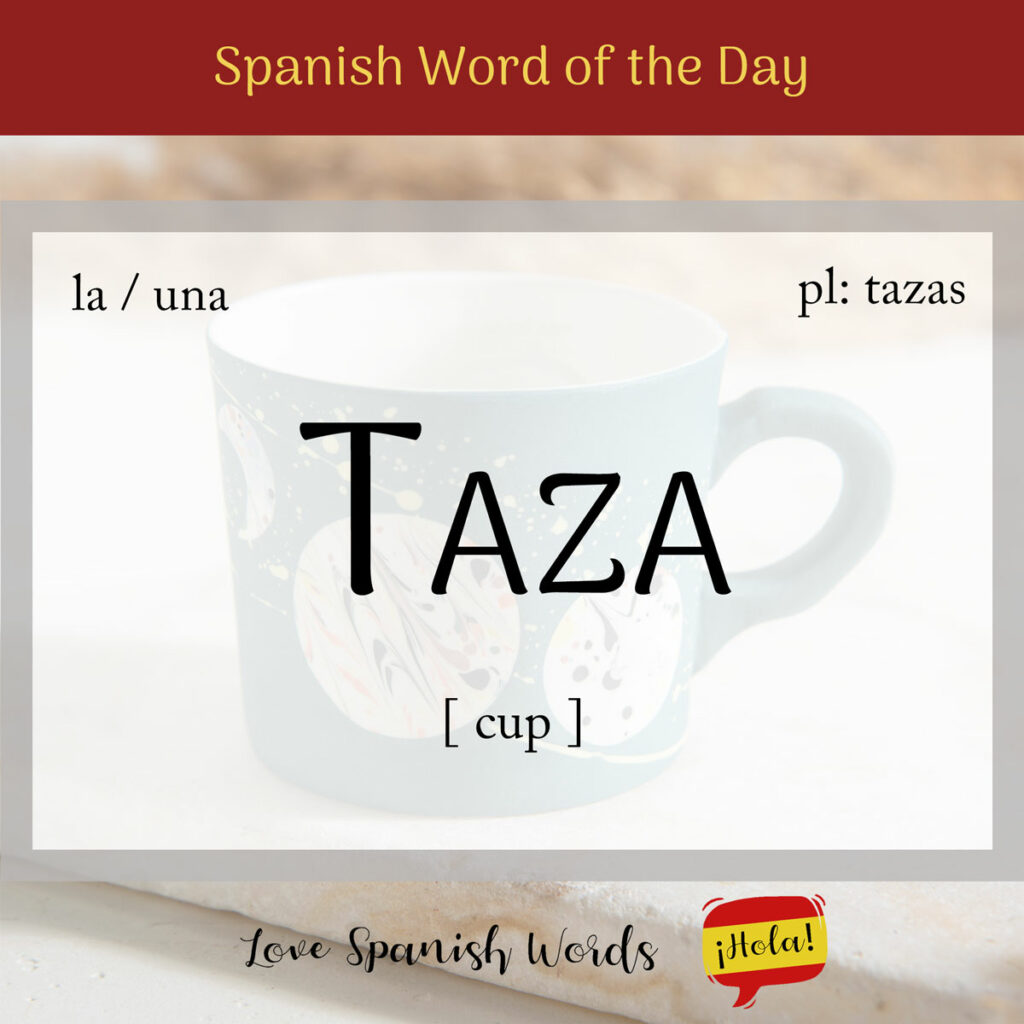The word for a cup in Spanish is taza, which derives from the Arabic طاسة (ṭassah), and ultimately comes from Persian تاس (tâs).
Latin American Pronunciation
European Pronunciation

Taza is a feminine noun, so it takes the following definite and indefinite articles:
- la taza = the cup
- una taza = a cup
- las tazas = the cups
- unas tazas = some cups
Compré esta bonita taza en el mercado.
I bought this nice cup at the market.
Taza can also mean a cupful of something when followed by the preposition de (of). It can be used in a generic sense, or when taking measurements while cooking or baking. Here are a few examples:
- una taza de té = a cup of tea
- una taza de café = a cup of coffee
- una taza de chocolate caliente = a cup of hot chocolate
- una taza de arroz = a cupful of rice
- una taza de harina = a cup of flour
A measuring cup is known as a taza medidora in Spanish. Using this kind of cup, you can measure out half a cup (media taza) or a quarter-cup (cuarto de taza).


Did you know that…?
In Spanish, the term for a mug (which is essentially a large cup) is taza alta, which directly translates to tall cup.
Here are a few different kinds of cups you will encounter:
- taza de viaje / con tapa = travel cup
- taza de té = teacup
- taza de café = coffee cup
Since children have difficulty drinking from normal cups, they are often given beakers, which are known as taza con pico (literally “cup with beak”).
You may also hear the term tazón, which literally means big cup. It refers to a deep bowl used for soups and cereal.

In addition to referring to a cup, taza in Spanish also denotes the toilet bowl (specifically taza del wáter) or a basin. In the Southern Cone, it’s also used for a washbasin or bathroom sink. When de noche (of night) is added to it, it becomes a chamber pot.

